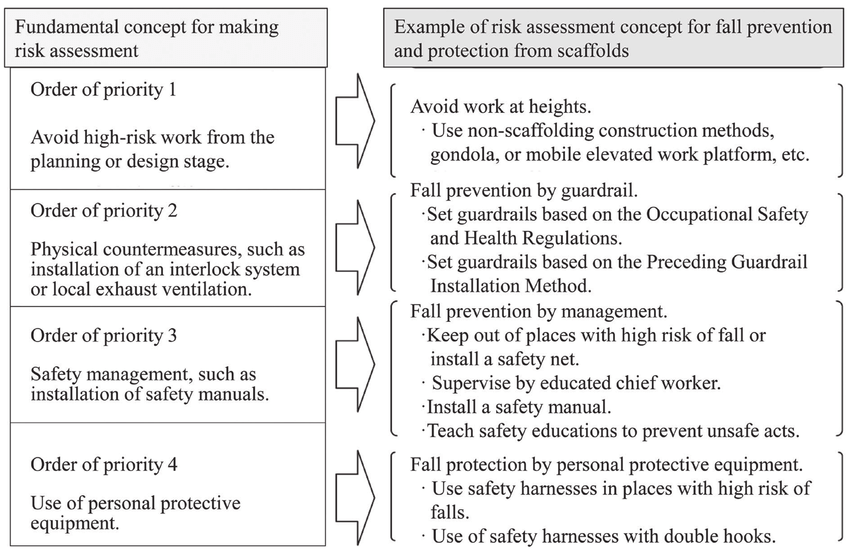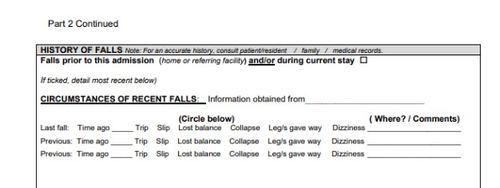6 Easy Facts About Dementia Fall Risk Described
6 Easy Facts About Dementia Fall Risk Described
Blog Article
Our Dementia Fall Risk Ideas
Table of ContentsOur Dementia Fall Risk DiariesAn Unbiased View of Dementia Fall RiskWhat Does Dementia Fall Risk Mean?Not known Incorrect Statements About Dementia Fall Risk The Ultimate Guide To Dementia Fall Risk
Examining loss threat helps the entire health care team establish a more secure setting for each client. Make sure that there is a marked location in your clinical charting system where team can document/reference scores and document relevant notes related to fall prevention. The Johns Hopkins Autumn Danger Evaluation Tool is among lots of devices your personnel can utilize to assist protect against damaging clinical occasions.Individual falls in healthcare facilities prevail and incapacitating unfavorable events that linger regardless of decades of effort to minimize them. Improving interaction throughout the evaluating nurse, treatment team, client, and patient's most involved family and friends may reinforce autumn prevention initiatives. A team at Brigham and Women's Health center in Boston, Massachusetts, looked for to develop a standard autumn prevention program that focused around improved interaction and patient and household engagement.

The development team stressed that successful implementation relies on individual and staff buy-in, assimilation of the program into existing workflows, and integrity to program processes. The group noted that they are facing exactly how to ensure connection in program implementation throughout periods of situation. During the COVID-19 pandemic, for instance, a boost in inpatient drops was related to restrictions in person interaction together with constraints on visitation.
A Biased View of Dementia Fall Risk
These occurrences are typically thought about preventable. To apply the intervention, organizations require the following: Accessibility to Loss suggestions sources Loss pointers training and retraining for nursing and non-nursing staff, including brand-new registered nurses Nursing workflows that permit individual and family members involvement to conduct the falls assessment, guarantee use the avoidance strategy, and perform patient-level audits.
The outcomes can be very destructive, frequently speeding up individual decrease and causing longer healthcare facility remains. One research study approximated keeps boosted an extra 12 in-patient days after an individual loss. The Loss TIPS Program is based upon engaging individuals and their family/loved ones across three primary procedures: analysis, customized preventative treatments, and bookkeeping to make sure that people are taken part in the three-step fall avoidance procedure.
The patient assessment is based on the Morse Loss Range, which is a verified loss threat evaluation tool for in-patient healthcare facility setups. The range includes the six most usual factors people in hospitals drop: the individual autumn history, high-risk problems (consisting of polypharmacy), use IVs and various other external devices, mental status, stride, and movement.
Each risk factor relate to several workable evidence-based treatments. The nurse creates a strategy that integrates the interventions and is visible to the treatment team, person, and household on a laminated poster or printed visual help. Nurses create the strategy while satisfying with the client and the patient's family members.
The Basic Principles Of Dementia Fall Risk
The poster works as an interaction device with other members of the client's treatment group. Dementia Fall Risk. The audit part of the program includes evaluating the individual's expertise of their threat factors and prevention plan at the unit and healthcare facility degrees. Registered nurse champs perform at least five individual interviews a month with clients and their households to look for understanding of the autumn prevention plan

A projected 30% of these falls result in injuries, which can vary in extent. Unlike various other negative events that require a standardized clinical feedback, loss avoidance depends extremely on the needs of the patient.
Dementia Fall Risk for Dummies

Based upon auditing outcomes, one website had 86% compliance and 2 sites had over 95% conformity. A cost-benefit analysis of the Loss ideas program in eight hospitals approximated that the program expense $0.88 per client to apply and led to cost savings of $8,500 per 1000 patient-days in straight expenses related to the avoidance of 567 falls over 3 years and eight months.
According to the innovation group, organizations interested in carrying out the program ought to perform a readiness analysis and falls avoidance gaps analysis. 8 In addition, organizations must guarantee the needed infrastructure and her explanation process for execution and establish an execution plan. If one exists, the organization's Loss Prevention Task official source Pressure should be included in preparation.
The Facts About Dementia Fall Risk Revealed
To start, companies need to guarantee completion of training modules by registered nurses and nursing aides - Dementia Fall Risk. Hospital staff ought to evaluate, based on the requirements of a hospital, whether to use an electronic health record hard copy or paper variation of the loss avoidance strategy. Applying groups need to hire and educate nurse champions and establish processes for bookkeeping and coverage on loss information
Personnel need to be included in the process of redesigning the workflow to involve people and family members in the analysis and prevention plan process. Equipment needs to remain in location so that units can recognize why a loss happened and remediate the cause. More especially, registered nurses must have channels to provide recurring responses to both personnel and unit management so they can change and improve fall avoidance process and communicate systemic troubles.
Report this page